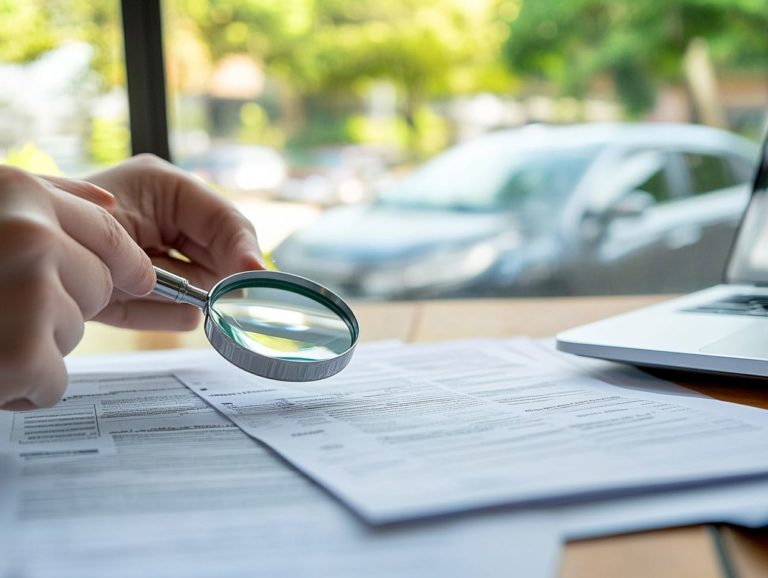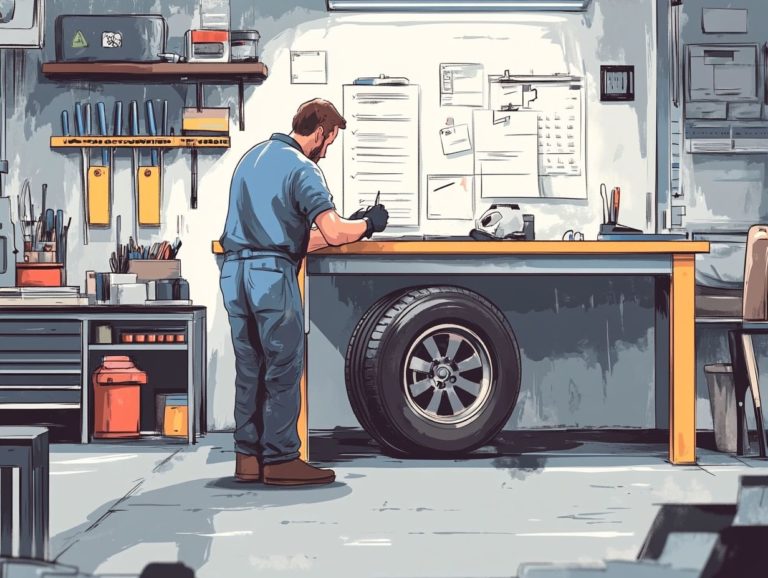5 Inspections to Consider Before Buying
Buying a home is a significant investment, and ensuring its condition is paramount.
Before you take that leap, conducting thorough inspections can save you from unexpected headaches and costs later on. This article delves into five critical areas to inspect:
- Structural integrity
- Roofing
- Plumbing
- Electrical systems
- Pest issues
It also brings to light red flags to watch for, the invaluable role of professional inspectors, and the benefits of pre-purchase inspections. Equip yourself with the knowledge to make informed decisions throughout your home-buying journey.
Contents
Key Takeaways:
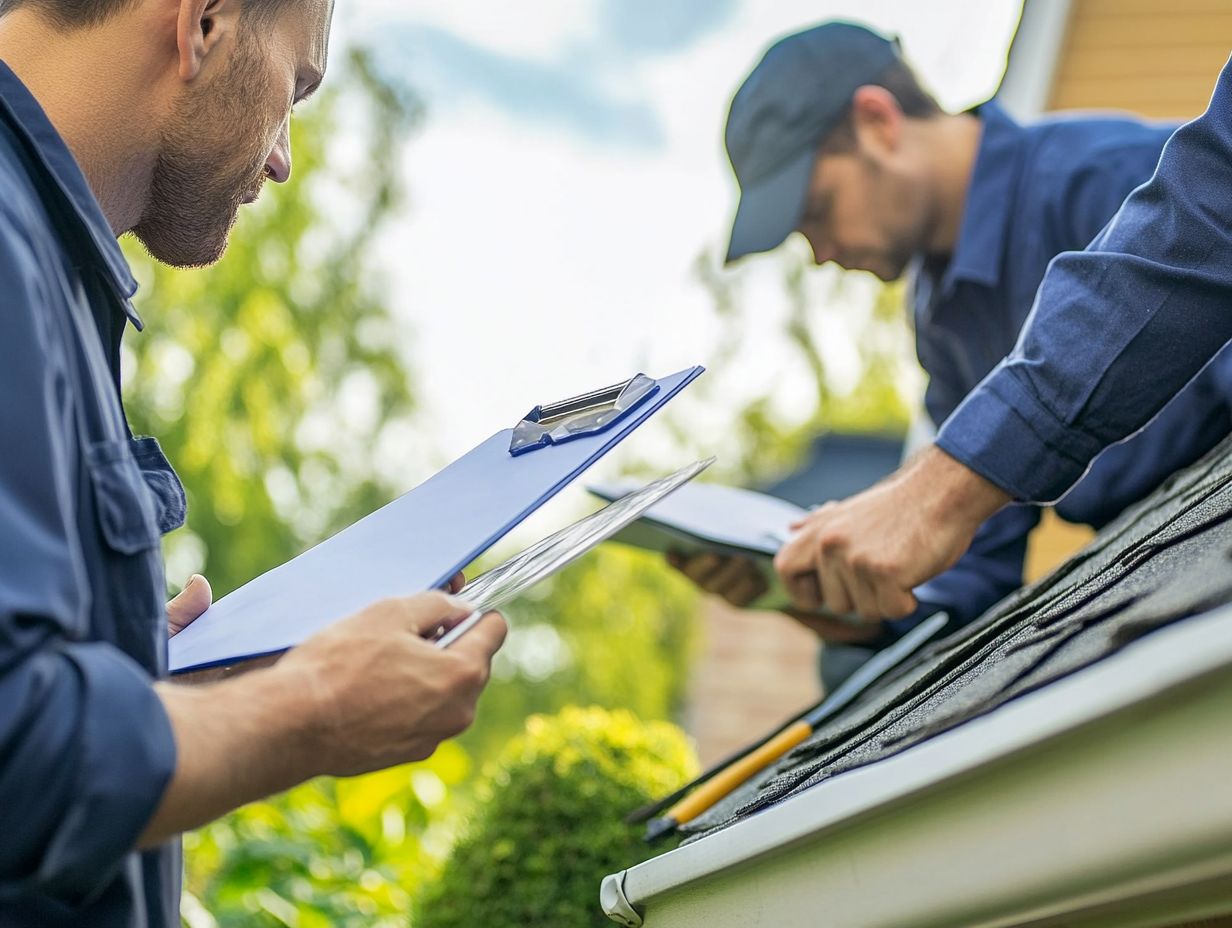
- Get a thorough structural inspection to ensure the safety and stability of the house.
- Don’t overlook the roof – a proper inspection can reveal potential leaks or damage.
- Plumbing issues can be costly and disruptive, so make sure to get a plumbing inspection before buying.
1. Structural Inspection
A structural inspection is an essential part of your home-buying journey, offering important details about the property’s strength and safety and overall condition. This knowledge can change everything about your home-buying experience!
During this comprehensive evaluation, certified inspectors carefully examine various aspects, such as foundational issues, wall stability, and potential safety hazards that might pose risks to future occupants. They ll scrutinize basements for signs of moisture and cracks, assess roofing conditions, and evaluate the reliability of electrical and plumbing systems.
The inspection report is a critical tool for you. It not only highlights existing problems that may require expensive repairs but also enables you to negotiate better terms or even reconsider a deal. By grasping these details, you can make informed decisions about your investment and achieve peace of mind in your purchase.
2. Roof Inspection
A roof inspection is essential for you to identify potential issues like water damage and make sure your roof works well. This is crucial for home maintenance and could significantly impact the overall appraisal of your property during real estate transactions.
During a thorough roof inspection, professionals will evaluate various components, checking for leaks, assessing structural integrity, and identifying any weather-related damage, such as missing shingles or signs of rust. Many homeowners often overlook the importance of these evaluations. However, neglecting them can lead to costly repairs later. The condition of your roof can heavily influence seller responsibilities; if any issues are detected, you may need to address them before finalizing a sale.
It s also important to note that inspection fees can vary based on the complexity and size of your roofing system. Investing in this essential step can ultimately save you money in the long run.
3. Plumbing Inspection
A plumbing inspection is essential for uncovering hidden plumbing issues that could spiral into costly repairs and safety hazards, ensuring you make informed decisions during your real estate transactions.
Throughout this vital process, a certified professional meticulously examines various factors, including the integrity of the pipes, to identify any signs of corrosion or leaks that might jeopardize the entire system. They assess water pressure levels to confirm they meet safety standards and can efficiently serve all fixtures in your home. The inspection also delves into the functionality of drainage systems, which help carry water away from the home, pinpointing any blockages or malfunctions that could lead to future headaches.
By thoroughly documenting these findings in a detailed inspection report, the professional highlights potential risks and provides clear recommendations for necessary repairs. This enables you with the essential knowledge needed to negotiate effectively, ensuring your investment is sound and secure.
4. Electrical Inspection
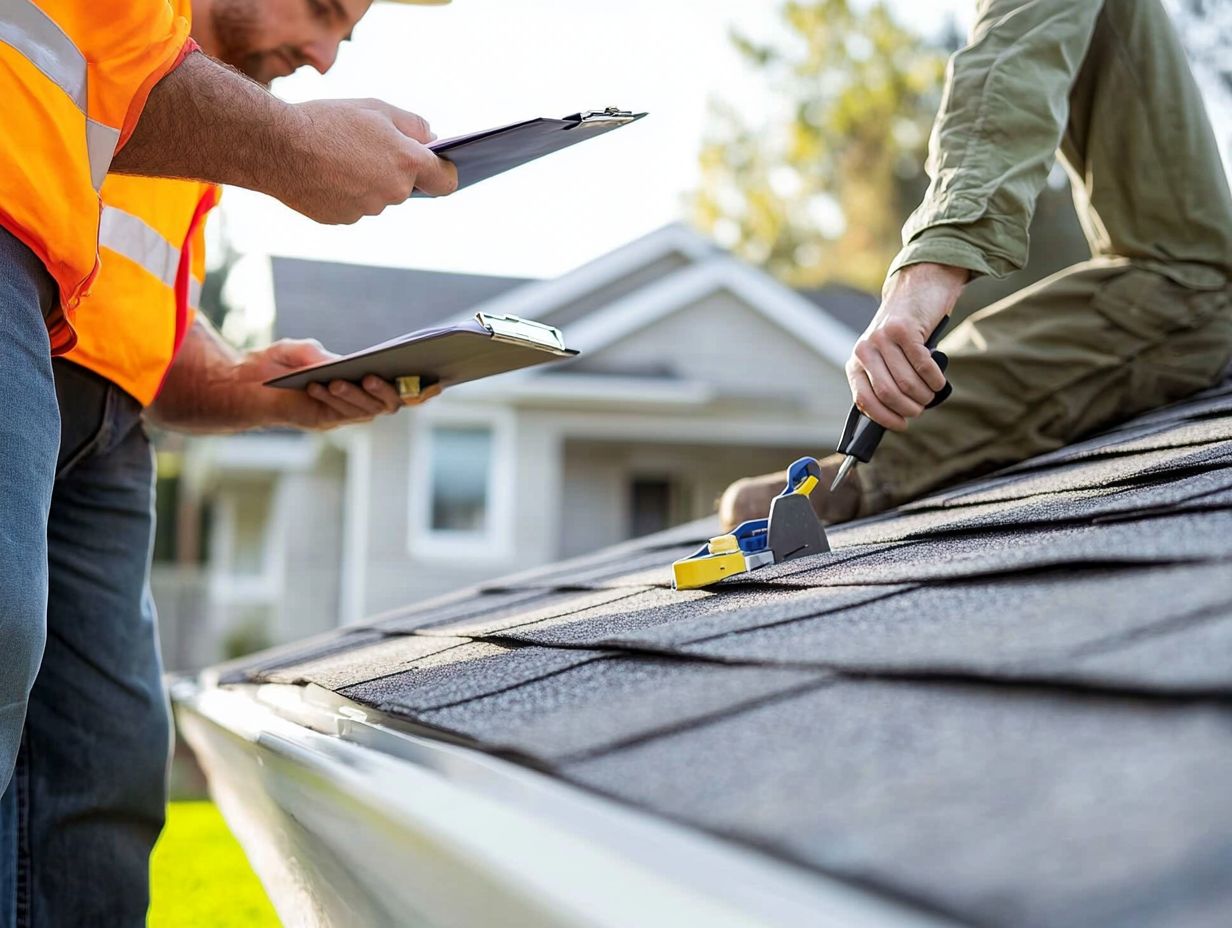
An electrical inspection is essential for ensuring that your electrical systems meet safety standards and building codes. This process not only provides peace of mind for you as a home buyer but also uncovers potential safety hazards that could impact your home’s evaluation and marketability!
During the evaluation, key components such as wiring, outlets, and circuit breakers are thoroughly examined. This helps to identify any outdated materials or faulty installations. By meticulously assessing these elements, the inspector guarantees that your electrical system is both functional and secure, which is crucial for the safety of everyone in the home.
Once the inspection is complete, a certified inspector will provide you with detailed recommendations based on their findings. This guidance will help you understand necessary upgrades or repairs. Taking this proactive approach not only mitigates risks but also boosts your property’s value!
5. Pest Inspection
A pest inspection is an essential step in your home-buying or selling journey. It uncovers infestations like termites and mold that can greatly affect your home appraisal and repair costs. For proactive individuals like yourself, this inspection serves as an important protection.
These inspections typically scrutinize a variety of pests, including rodents, cockroaches, and carpenter ants all of which can wreak havoc if left unchecked. Termites can undermine the structural integrity of your home, while mold can compromise indoor air quality and pose health risks.
That s why pest control recommendations in the inspection report are invaluable! They offer guidance on fixing any pest issues and preventative measures. While the inspection fees might appear as an upfront expense, think of them as a small investment in the grand scheme of home maintenance, helping you sidestep much larger costs in the future.
What Are the Key Areas to Inspect in a House?
When you re looking to buy a house, there are several key areas that deserve your careful attention. These details can affect your decision and the home’s value in the real estate arena.
Understanding the state of essential structural elements like the foundation, roof, and walls is absolutely vital. These components play a significant role in ensuring safety and long-term durability. Take a close look at the plumbing systems for any leaks and assess the water pressure. This can save you from expensive repairs later on. A thorough examination of the electrical systems is equally important to ensure they meet safety standards and protect against potential hazards.
Don t overlook pest conditions! They can hint at underlying problems that might jeopardize both the structural integrity and health of the home. Prioritizing these areas during inspections can enable you to make well-informed choices. Expert recommendations can help you negotiate necessary repairs or adjust your offers based on the property’s true condition.
What Are the Red Flags to Look Out for During Inspections?
Look out for red flags during inspections! They can reveal serious issues that may lead to costly repairs or compromise safety, ultimately impacting the property’s evaluation and investment potential.
You should remain particularly vigilant for signs of water damage, which might present themselves as unusual stains on ceilings or walls, indicating potential leaks. Watch for structural cracks, especially those that widen over time, as they can signal serious foundation problems that could jeopardize the home s stability. Pest infestations can pose health risks and lead to extensive damage if not addressed promptly.
It s essential for you to thoroughly document these concerns and consult with professionals who can provide a complete check-up. This diligence will help you sidestep common pitfalls that could result in unforeseen expenses down the line.
Don’t wait! Schedule your inspections today to protect your investment!
How Can a Professional Inspector Help in the Buying Process?

A professional inspector is crucial for home buyers. They provide an objective assessment of the property’s condition.
This insight is essential for you as a buyer. It helps you make informed decisions and aim for a favorable home appraisal.
Inspectors have special training and certification. They check everything from structure to electrical systems and plumbing.
Their expertise reveals hidden issues that might slip past the untrained eye. This equips you with vital information about the property’s overall health.
This thorough examination helps you grasp potential problems that could lead to costly repairs in the future.
Inspectors deliver their findings in a clear and informative report. This allows you to negotiate repairs or adjustments with confidence, ensuring a smoother transition into homeownership.
What Are the Benefits of Getting Inspections Before Buying a House?
Getting inspections before purchasing a house comes with many benefits. You ll be able to identify repair costs upfront and make informed decisions.
This can enhance the likelihood of a favorable home appraisal. It s a smart move that can save you money!
By opting for a comprehensive pre-purchase inspection, you gain insight into the current condition of the property.
You also get a clearer picture of potential future maintenance needs. This proactive approach enables you to budget effectively and avoid unexpected financial surprises down the line.
Detailed reports on repairs become invaluable negotiating tools. These reports grant you leverage in discussions with sellers about necessary fixes or price adjustments.
With this information, you can proceed confidently, knowing you ve made a well-informed choice regarding one of life s most significant investments.
What Are the Different Types of Inspections Available?
Understanding the various types of inspections available is crucial for you as a home buyer. Each inspection type focuses on specific areas of concern.
This includes pest infestations, mold presence, or hazardous materials like asbestos and lead.
A general inspection offers a broad overview of the property s condition. It assesses the structural integrity along with essential systems like plumbing and electrical.
Pest inspections are dedicated to uncovering wood-destroying organisms that could jeopardize the home s foundation.
Mold inspections focus on spotting hidden spores that might pose health risks. Environmental assessments identify pollutants affecting air quality.
Each of these inspections is critical. They contribute to a thorough evaluation of the property. This ensures you have a clear understanding of the home s overall safety and habitability before committing to such a significant investment.
How Can One Prepare for Inspections Before Buying a House?
Preparing for inspections before purchasing a home is crucial for you as a buyer. This ensures the entire process unfolds seamlessly.
To optimize this vital step, schedule the inspection at a time when you can be present, preferably during daylight hours. This enhances visibility and allows you to engage with the inspector.
Prioritize accessibility to all key areas such as attics, basements, and crawl spaces. Clear pathways and make sure any locked zones are accessible.
Gather important documents, like maintenance records and disclosure statements. This gives the inspector insight into the home s history and condition, enriching the evaluation process.
By taking these proactive steps, you can ensure that the inspection is thorough and informative.
Frequently Asked Questions
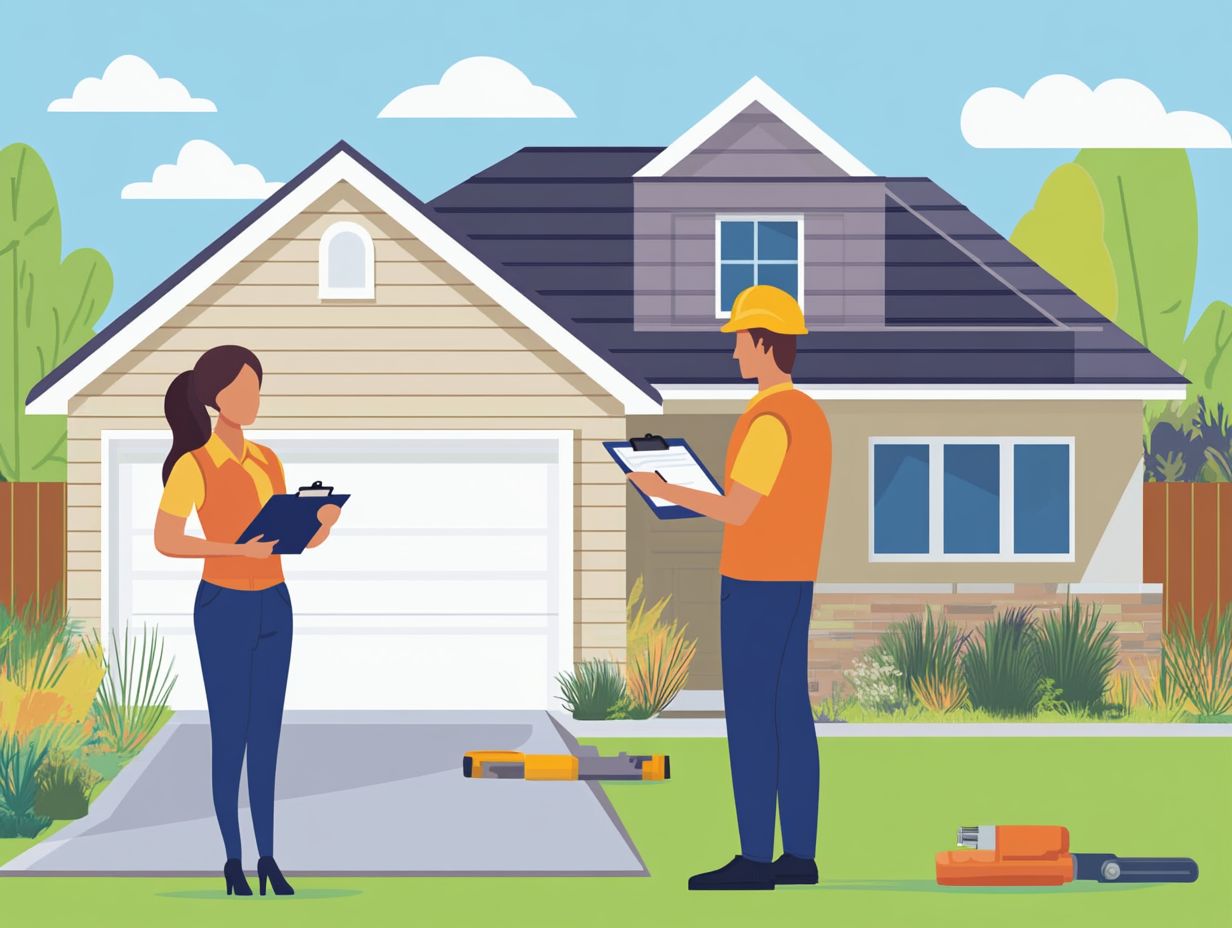
What are the 5 inspections you should consider before buying a property?
Before you buy a property, don’t skip these five things to consider, as they can save you from costly surprises!
The five inspections are a general home inspection, a pest inspection, a roof inspection, a plumbing inspection, and an electrical inspection.
Why is a general home inspection important?
A general home inspection assesses the property’s condition. It checks the structure, foundation, heating and cooling systems, and other major systems.
This can uncover potential issues and help you understand the property’s true value.
What does a pest inspection entail?
A pest inspection involves a licensed professional checking for signs of pest infestation. This includes termites, rodents, or other insects.
It’s vital to protect your investment and ensure the property is free from structural damage caused by pests.
Why should I get a roof inspection?
A roof inspection reveals any existing or potential issues like leaks or damage. Knowing this helps you negotiate repairs or replacements with the seller before buying.
What does a plumbing inspection cover?
A plumbing inspection checks the pipes, fixtures, and water pressure. It identifies leaks, clogs, and outdated plumbing that could lead to expensive repairs later.
Why is an electrical inspection necessary?
An electrical inspection verifies that all systems are safe and up to code. This can reveal fire hazards and safety concerns, giving you peace of mind when buying the property.



